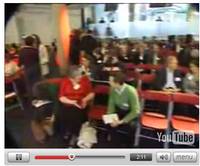 Given it's Open Space flavour the Digital Media Literacy Summit on Thursday (8th Nov) at the Channel 4 building in London didn't exactly come up with a set of clear action points for building digital media literacy, but it did offer some key insights that can help us on the way.
Given it's Open Space flavour the Digital Media Literacy Summit on Thursday (8th Nov) at the Channel 4 building in London didn't exactly come up with a set of clear action points for building digital media literacy, but it did offer some key insights that can help us on the way.
That said, if the event was a Summit, then participants had climbed to it from many different directions, and I suspect in fact all we have done so far is to move towards a basecamp where we need to consolidate, take stock, and then climp the real peak.
Building the basecamp
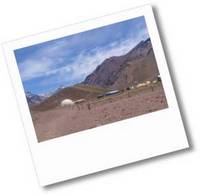 I was tasked with capturing interviews with the key speakers at the event, and young reporters from MediaSnackers were roaming the event capturing vox pop interviews with delegates. All the videos are available on the Policy Unplugged website, but below I've tried to weave together a summary of the voices I heard and the threads of conversation that ran throughout the day.
I was tasked with capturing interviews with the key speakers at the event, and young reporters from MediaSnackers were roaming the event capturing vox pop interviews with delegates. All the videos are available on the Policy Unplugged website, but below I've tried to weave together a summary of the voices I heard and the threads of conversation that ran throughout the day.
Links in Bold point to the short ( < 3 mins) video interviews with speakers from the Summit that I was tasked to capture on the day.
Paragraphs/sentences in italics show where I'm adding my own commentary or analysis to this summary rather than reflecting on the words of others.
The Digital Media Literacy Summit 2007
Peter Packer, a strategy adviser to the UK Film Council and Media Literacy Task Force, and involved in the convening of the event offered an overview of the media literacy taskforce and it's role in the the debate over digital media literacy in the UK – explaining the importance of building a media literacy that allows individuals to:
-
Analyse media, understanding its context and the reasons for which it was created.
and -
Create media, and understand the creation process.
The charter for media literacy goes some way to expanding upon that. The theme of allowing individual to develop media literacy through creating media was one picked up by Dick Penny from the Watershed in Bristol, who emphasised that digital media literacy is no different from other forms of literacy, and that there have been cultural organisations engaging citizens 'from the edges' in media creation for a long time.
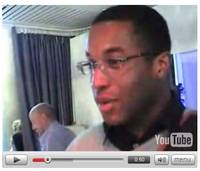 In this mediasnackers Vox Pop Joven and Tom captured a range of definitions of media literacy from around the floor of the conference. Katie and Shadeeka also captured a range of defintions from delegates. For some, digital media literacy isn't about technology – but for others, understanding the devices and the tools is crucial. To an extent, individuals definitions of digital media literacy may appear to map onto whether they are concerned with the analysis of media by the consumer, or the creation of media by the citizen.
In this mediasnackers Vox Pop Joven and Tom captured a range of definitions of media literacy from around the floor of the conference. Katie and Shadeeka also captured a range of defintions from delegates. For some, digital media literacy isn't about technology – but for others, understanding the devices and the tools is crucial. To an extent, individuals definitions of digital media literacy may appear to map onto whether they are concerned with the analysis of media by the consumer, or the creation of media by the citizen.
Both 20 year old student Yemesi Blake and Silver Surfer of the Year 2007 Joan Barker made it clear that the key to gaining digital media literacy is just getting started and getting engaged, particularly in Yememi's view in creating the media through blogging. Matt Locke, a Commissioning Editor with Channel 4, picked up the theme of enabling people to just get started with a call for more 'cheats and hacks and walk-throughs' to enable citizens to gain digital media literacy from the bottom up, rather than through top-down charter-driven debates.
The importance of access was a key concern. This arose both in terms of accessing the equipment to connect to the digital media world (as this interview with delegates by MediaSnackers Yaz and Clare shows), and in terms of being able to access social media and digital media spaces in schools and learning environments without being subject to locked-down internet access with blocks on anything interactive.
Ewan McIntosh, picked up this reflection, and outlined the amazingly positive ways social media can contribute to education and collaboration if we avoid the route of locking everything down and don't "try to teach people to swim without any water".
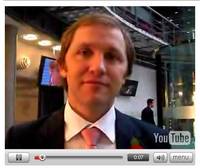 In his keynote speech (and interview afterwards) James Purnell MP, Secretary of State for Culture, Media and Sport, touched upon the loss of controls that digital media has brought, and the way government does not want to re-introduce new forms of censorship to regain that control – but also spoke in his keynote of new forms of blocking software to allow parents and institutions to limit young peoples access to content. James Purnell also emphasised the role of government in setting frameworks but not in legislating on digital media literacy.
In his keynote speech (and interview afterwards) James Purnell MP, Secretary of State for Culture, Media and Sport, touched upon the loss of controls that digital media has brought, and the way government does not want to re-introduce new forms of censorship to regain that control – but also spoke in his keynote of new forms of blocking software to allow parents and institutions to limit young peoples access to content. James Purnell also emphasised the role of government in setting frameworks but not in legislating on digital media literacy.
Controlling content access continued to crop up as a theme – without, it seemed, a clear argument during the day to analyse the role 'intelligent blocking' software has to play in building media literacy. (Without that argument, it might seem blocking just puts off the need for certain 'tough' forms of digital media literacy). It may be that a connected, but arguably separate, debate about internet safety was finding itself tangled up in the day's proceedings.
On that theme of safety Dr Tanya Byron was present at the Summit and provided this short introduction to her review on young peoples online safety and how digital media literacy fits with the Byron Review. Tanya also spoke on the platform later in the day to confirm her support for a code of conduct and some res
Whereas Ewan identifies schools as the key location for building digital media literacy, I spoke to Raemmel and Furqan in this vox-pop interview to highlight the role of Youth Work in supporting young people to develop the skills to safely navigate the social aspects of digital media in a world of social networks.
As the event moved from presentations to an open space format, it was clear that there were a lot of questions still to answer. Including:
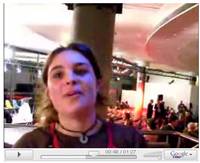 Is digital media literacy really a new cannon? How much does the technology change things?
Is digital media literacy really a new cannon? How much does the technology change things?
17 year old Jelly Ellie certainly saw there being a gulf between young people and their parents with respect to their media worlds, and Jon Gisby offered a look at how the media landscape has changed and the way in which that brings new demands and new challenges.
The accessiblity of the digital realm to those with learning disabilities was the subject of one open space group, and others tackled the question of digital media literacy for older people. The need for an inclusive digital media literacy agenda was certainly felt.
An ongoing conversation
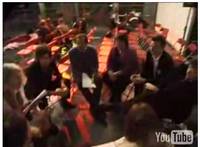 As I said in opening, this wasn't a summit that lead to a shared conclusion. It launched conversations threads that now need to be tracked forward and woven together.
As I said in opening, this wasn't a summit that lead to a shared conclusion. It launched conversations threads that now need to be tracked forward and woven together.
The inputs were not only in the open space discussions and in speeches from the platform, but were being shared through the blogosphere as live blogs and have been shared in blog posts since (this one amongst them). A quick blog search today turns up a great live-blogged sumamry from Ewan, addressing questions of age and access, and a reflective summary of the day from social media strategist Katie Lips. I'm sure there is more to come…
Update
The Policy Unplugged site where these videos are hosted has been a little intermittent. You can find all of the videos on this youtube channel or using the player below
Thanks for featuring the young digital reporters stuff Tim – interested to read and watch your elements as well and you offer a succinct overview of the day 🙂
DK
MediaSnackers Founder
Thanks, Tim. This is an excellent analysis and summary of the Summit organised last week by the Media Literacy Task Force (a group of media stakeholders such as the UK Film Council, the BBC & Media Educators etc). Your interviews certainly capture the flavour of the event and some key intewrventions by speakers and guests – but also add a point of view of your own which is very welcome and interesting. A great job all round!